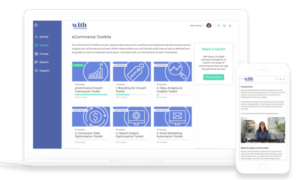What is email marketing automation?
Email marketing automation is a marketing process that sends triggered and timed marketing emails to subscribers on your mailing list. It enables businesses to send out personalized messages to both prospects and customers on a schedule or when specific conditions are met.
Why is email marketing automation important?
Email marketing automation is all about making marketing campaigns an automated process. Automating emails saves you time in creating and sending new emails each time when a prospect shows interest in a brand, a customer abandons a cart, a business launches a sale, and so forth. Studies have shown that using marketing automation software can lead to an 80 percent increase in the number of leads and a 77 percent boost in conversions.
There are many email marketing automation tools out there today, and they vary widely in terms of functionality and price. A good resource for comparing and reviewing these platforms is a site called EmailToolTester.
Here is a list of minimum requirements we would suggest you look out for when selecting an email marketing platform:
- A good selection of email templates
- Easy to use email builder
- Mobile responsive designs
- Spam testing tool
- Good send limits
- Flexible pricing – make sure you check that there are no lock in contracts
- Good reporting
- Good Integration into your website
- Good support
Below is a list of 5 different marketing automation types you can consider:
- Automated – custom sequence of email actions and conditions
- Auto Responder – an automated campaign that will send after someone subscribes
- Split Testing – compare multiple emails to test which works best
- RSS Triggered – sends whenever your RSS based feed is updated
- Date Based – send on contact birthdays, anniversaries and more.
The most effective way to utilize your email marketing automation platform is to build out a number of series. An automated email marketing series involves sending out a ‘series’ of related marketing emails to your customers and prospects automatically, based on a schedule or triggers that you define.
A recent report found that just 3% of small businesses with less than $5m in revenue have invested in email marketing automation. This presents a big opportunity for you to grow your revenue, without a significant financial outlay.
As a small business owner, you already have enough on your plate. And as your business grows and more leads start flooding in, it becomes even more challenging for you to offer consistent experiences to everyone that interacts with your business.
Email automation helps you take care of your existing customers as well as new leads who sign up to your email list.
Your email marketing strategy should basically be utilizing email automations through each stage of your customers journey.
So here is a customers journey with your brand (also known as your marketing funnel).
Awareness: Awareness is the uppermost stage of the marketing funnel. Potential customers are drawn into this stage through marketing campaigns and discovery. Lead generation takes place, as information is collected for nurturing further down the funnel.
Interest: Once leads are generated, they move on to the interest stage, where they learn more about your company, your products, and what you are about. Once a lead has demonstrated their interest by signing up to your email list this is an opportunity for you to nurture your relationship and introduce in more detail what your brand is about.
Consideration: In the consideration stage, leads have been changed into prospective customers. You can send your prospective customers more information about products and offers through automated email campaigns, whilst continuing to nurture them with targeted content.
Intent: To get to the intent stage, prospects must demonstrate that they are interested in buying your product. This can happen via a quiz, after a product demonstration, or when a product is added to the shopping cart on your website. This is an opportunity for you to make a strong case for why your product is the best choice for the prospective customer.
Evaluation: In the evaluation stage, buyers are making a final decision about whether or not to buy your particular product or service. Your email marketing at this stage needs to focus on nurturing the decision-making process and convincing the buyer that your product or service is the best choice.
And finally, they purchase!


